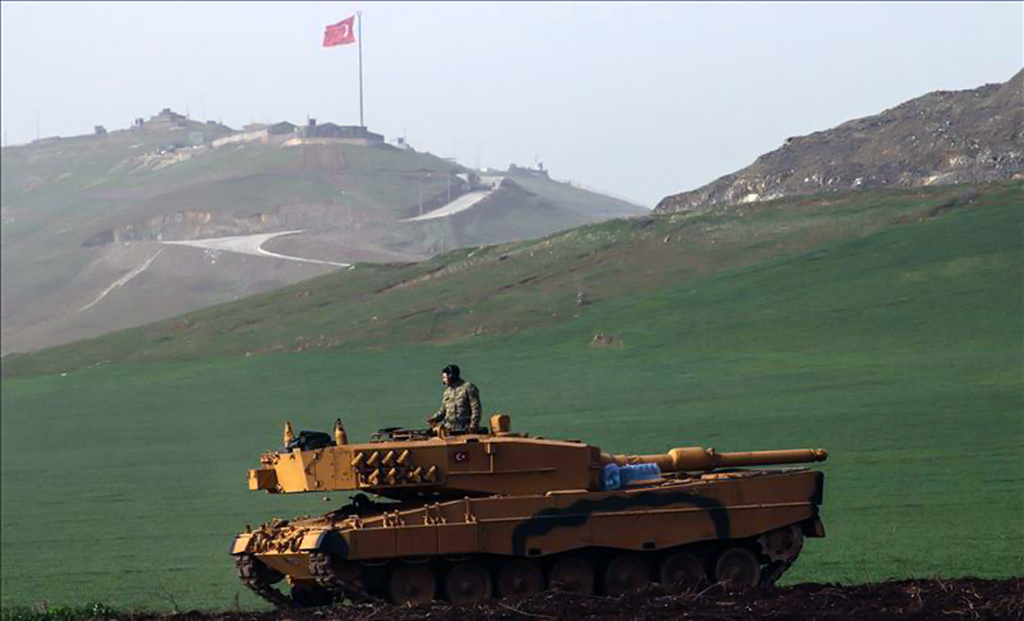Obviously, Turkey's imminent military incursion into northeastern Syria will mark a turning point in the history of the seven-year conflict. That operation will likely challenge the balance of power between some of the most powerful players in the Syrian theater and strengthen Turkey's hand at the negotiating table. Depending on Washington's response, the coming days will chart the new course for Turkey-U.S. relations. Russia's plan to fuel tensions among NATO allies will manifest itself in the Syrian theater, as the United States will be compelled to finally decide what it wants to accomplish in Syria.
The time for tactical and temporary steps is over. The status quo cannot last. To be clear, Washington's references to the fight against Daesh terrorists don't really work either. As a matter of fact, the Turks are publicly offering to finish off Daesh to keep the ball in the Trump administration's court. Turkey's commitment to send its troops to northeastern Syria is so significant that it could rid Washington's Syria policy of its traditional ambiguity. The question is what would happen if the United States refuses to negotiate with Turkey and develop a new plan to work together in east of the Euphrates River.
Ignore for a second Moscow's seemingly weak statements on that issue. The Russians are perfectly aware that the situation east of the Euphrates River will test Turkey's relationship with the United States and that the Kremlin stands to profit from it. As a matter of fact, Russia played the game so well that it simply cannot lose. If tensions between Ankara and Washington escalate and spill over to the military relationship, Moscow will probably seize the opportunity to work even more closely with the Turks.
Moreover, the PKK's Syrian component could slip out of Washington's control and possibly cozy up to the Assad regime if it suffers setbacks east of the Euphrates River. Moscow could facilitate that process by building on its direct dialogue with the YPG in Tel Rifaat and indirect contact through the Assad regime proxy in Qamishli. An additional benefit would be the partial containment of Iran in the Syrian theater as a direct result of Turkey's growing clout east of the Euphrates River.
It is no secret that a new military incursion by Turkey and the Syrian opposition, which could further strengthen their influence over northeastern Syria, would make Iran deeply unhappy. Yet Tehran could welcome the opportunity to take a breather if Washington's attention shifts from Iran to other issues, hoping that it can make demographic changes in strategically important parts of Syria without anyone noticing. Keeping in mind that Saudi Arabia still hasn't recovered from the aftershock of journalist Jamal Khashoggi's murder, the Iranians would welcome every opportunity to undermine Washington's containment policy. Finally, Bashar Assad could really benefit from a decision by the PKK's Syrian component to fall into line.
Turkey's commitment to launch a military incursion into northeastern Syria forces the United States to make some difficult decisions. Washington's bilateral relations with the Turks have been strained by the Halkbank controversy, the situation in Manbij, Turkey's intention to purchase the Russian S-400 air defense system, the pending delivery of F-35 fighter jets to Ankara and the U.S. failure to extradite Fetullah Gülen. Soon, a hot conflict between the two countries could be on the books for the two NATO allies.
Yet the ship hasn't sailed on a last ditch effort to promote closer cooperation between Turkey and the United States. The two countries could work together in Syria if they finally see eye to eye on the PKK's Syrian component. Needless to say, that agreement would have repercussions across the region.
The challenges to Washington's ongoing effort to contain Iran with the help of certain Gulf countries are obvious. Moreover, the U.S. could stop the Russians from making strategic gains at a low cost by working more closely with Turkey. Letting U.S. Central Command (CENTCOM), with all its brutality, hijack Washington's policy toward Turkey plays right into the hands of Russia and Iran. It is time for the Trump administration to make a new deal east of the Euphrates River. Leader-to-leader diplomacy has worked in the past, and it could serve the best interests of both sides now – just look at the outcome of Erdoğan's meetings with Russian President Vladimir Putin.
[Daily Sabah, 17 December 2018]







